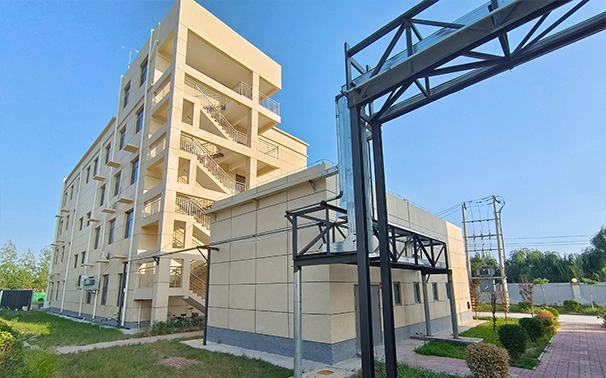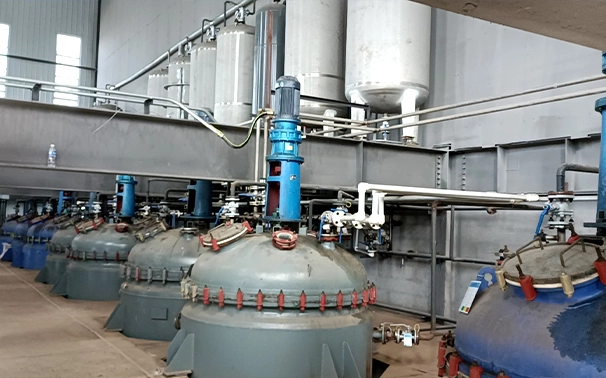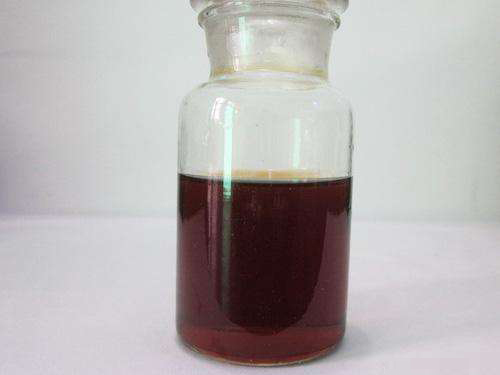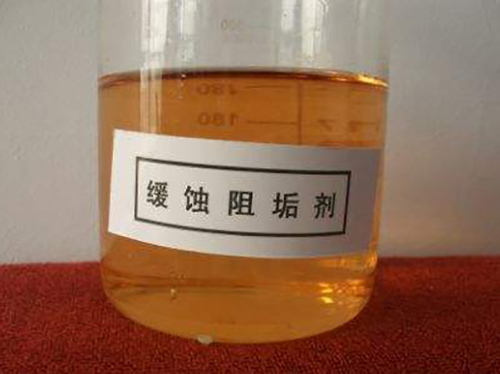Built Scale & Corrosion Inhibitors and Pretreatment Filming Agents, Products
In the fast-evolving world of industrial operations, protecting metal components from rust, scale, and corrosion is no longer optional—it’s essential for maintaining performance, ensuring safety, and controlling long-term costs. Long-term exposure to moisture, oxygen, salts, and temperature fluctuations can seriously degrade metal infrastructure, particularly in critical systems like pipelines, boilers, HVAC units, and structural steel. That’s why our polycarboxylic corrosion and scale inhibitor is engineered to deliver outstanding performance across a wide range of industrial applications. Whether you're looking for an anti corrosion coolant to maintain the health of automotive systems, a coolant corrosion inhibitor to protect HVAC loops, or a rust inhibitor for metal components in factory machinery, our formula provides flexible, reliable protection.
This advanced corrosion inhibitor chemical works through a smart mechanism—by forming a thin, invisible, and highly stable film on the surface of metals, it blocks both corrosive agents and scale-forming ions such as calcium and magnesium. The result is a significant reduction in rust formation and mineral buildup, even under high-pressure or high-temperature conditions. In the energy sector, the role of corrosion inhibitors in the oil and gas industry is vital, as they extend the working life of pipelines and refinery equipment, reducing leak risks and unscheduled downtime. Similarly, in infrastructure and construction, the use of corrosion inhibitors in concrete enhances the durability of steel-reinforced structures, especially in marine zones or roadways treated with deicing salts.
Our corrosion and scale inhibitor is also distinguished by its non-toxic, environmentally friendly formulation—an increasingly important factor for companies adhering to sustainability standards. It’s safe to use in systems requiring regular water exchange and fits both recirculating and once-through water treatment systems. As a metal rust protection and metal inhibitor solution, it supports not only operational efficiency but also long-term asset protection. If your goal is to minimize equipment wear, prevent costly maintenance, and extend the lifecycle of your machinery, this corrosion and scale inhibitor delivers the kind of consistent performance that modern industry demands.
-
LK-318 ដែលជាមាត្រដ្ឋានពិសេស និងសារធាតុទប់ស្កាត់ការ corrosion សម្រាប់រោងចក្រថាមពល ត្រូវបានផ្សំដោយអាស៊ីត phosphonic សរីរាង្គ អាស៊ីត polycarboxylic សារធាតុទប់ស្កាត់ការ corrosion ដែកកាបូន និងសារធាតុទប់ស្កាត់ការច្រេះស្ពាន់។
-
ផលិតផលនេះត្រូវបានផ្សំឡើងដោយអាស៊ីត phosphonic សរីរាង្គ អាស៊ីត polycarboxylic សារធាតុទប់ស្កាត់ការ corrosion ដែកកាបូន ល។ វាមានប្រសិទ្ធិភាព chelating និងបែកខ្ចាត់ខ្ចាយល្អលើកាល់ស្យូមកាបូណាត និងកាល់ស្យូមផូស្វាតក្នុងទឹក ហើយមានឥទ្ធិពលយឺតល្អលើដែកថែបកាបូន។
How Does an Anti Corrosion Coolant Protect Vehicle Engines from Internal Damage?
An anti corrosion coolant plays a crucial role in safeguarding a vehicle’s engine from internal damage by establishing a chemically stable environment within the cooling system. Over time, standard coolants can degrade, especially under the high heat and pressure conditions found in engines. When this happens, they lose their protective properties, allowing corrosive substances—such as oxygen, salts, and residual acids—to aggressively attack metal surfaces like the radiator, water pump, and cylinder block. This is where a coolant corrosion inhibitor becomes essential. It forms a micro-thin protective film on the surface of internal metal parts, acting as a shield against oxidation, galvanic corrosion, and pitting corrosion. This thin layer significantly reduces the likelihood of metal fatigue and premature component failure, helping keep the engine running smoothly and efficiently under all operating conditions.
In addition to providing a physical barrier, engine coolant corrosion inhibitors also chemically stabilize the coolant itself. They actively manage the pH levels in the coolant, maintaining the correct balance between alkalinity and acidity to suppress electrochemical reactions that accelerate corrosion. A key component in this formulation is polycarboxylic acid, a compound well-known for its superior ability to disperse mineral ions like calcium and magnesium. These minerals, if left untreated, can form hard scale on metal surfaces, reducing the efficiency of heat transfer and increasing engine temperatures. By eliminating both corrosion and scale formation, the anti corrosion coolant ensures that engine components operate within safe temperature ranges and that the coolant flows freely without obstruction. This protection is especially important for long-haul trucks, commercial buses, and heavy-duty machinery, where the engine runs for extended periods under stress. In such applications, investing in a high-quality coolant corrosion inhibitor isn’t just preventative maintenance—it’s a strategic move to cut down on repair costs, reduce downtime, and extend the engine’s service life.
Do Rust Inhibitor for Metal Really Work?
Yes, a rust inhibitor for metal really does work—especially when you invest in a high-quality rust inhibitor for metal designed for industrial use. In environments where heavy machinery is in constant operation or metal components are stored for long periods, rust isn’t just cosmetic—it’s a costly problem that leads to mechanical failure, increased maintenance, and production downtime. Rust forms when metal is exposed to oxygen and moisture, particularly in the presence of salts, which accelerates corrosion. A top-tier rust preventer for metal addresses this by forming an invisible, protective barrier on metal surfaces that blocks out those damaging elements before they can trigger the oxidation process. This protective shield ensures metals stay clean, functional, and structurally sound—even under harsh conditions. For manufacturing environments like stamping plants, machining workshops, and equipment warehouses, this is a critical safeguard that preserves both materials and efficiency.
What sets our product apart is its polycarboxylic formula, which offers strong protective performance without the downsides of traditional oil-based coatings. Unlike greasy alternatives that can be messy, attract dust, or require special cleanup procedures, our rust inhibitor for metal is water-soluble and environmentally friendly. It’s easy to apply and safe to handle, making it ideal for both pre-treatment of parts and ongoing protection within operational systems. This makes it suitable not only for exposed metal but also for components in closed-loop cooling systems or parts that need to be dipped before storage or use. For food processing facilities or high-standard manufacturing lines, where cleanliness and equipment uptime are non-negotiable, this product offers both peace of mind and performance. Over time, using a reliable rust preventer for metal means fewer part replacements, less corrosion-related damage, and a smoother, more predictable workflow—proof that rust inhibitors not only work but are essential in keeping modern industry running.
How Are Corrosion Inhibitor Chemicals Used in the Oil and Gas Industry to Protect Pipelines?
The role of corrosion inhibitors in the oil and gas industry is absolutely pivotal, especially considering the extreme and often aggressive environments in which this infrastructure operates. Pipelines, offshore platforms, and refineries are continuously exposed to harsh elements such as chloride ions, hydrogen sulfide (H₂S), and carbon dioxide (CO₂)—all of which are notorious for accelerating metal degradation. Without proper protection, these corrosive agents can compromise the structural integrity of vital equipment, leading to leaks, contamination, or catastrophic failures. Corrosion inhibitor chemicals serve as a frontline defense by forming a thin, protective layer over the internal surfaces of pipelines. This layer acts as a chemical shield, minimizing direct contact between corrosive compounds and metal surfaces. Products formulated with polycarboxylic compounds are especially effective, thanks to their excellent film-forming properties, which provide uniform surface coverage even under turbulent flow conditions. These corrosion scale inhibitors perform reliably in both sweet gas (low H₂S) and sour gas (high H₂S) environments, making them a rust inhibitor for metal solution for varied oilfield chemistry.
In practice, corrosion inhibitor chemicals are used across multiple stages of oil and gas operations. During upstream activities—like drilling and extraction—metal inhibitors help extend the lifespan of well casings and tubing by mitigating internal corrosion caused by acidic or saline formation fluids. Midstream systems, such as long-distance pipelines, benefit enormously from these treatments as well. By preventing the buildup of corrosion byproducts and scaling, inhibitors reduce the frequency of pigging operations and internal cleaning, thereby improving throughput and minimizing shutdowns. In downstream refining, where high-pressure and high-temperature processes are common, corrosion inhibitors help maintain system stability and reduce unplanned maintenance. Ultimately, investing in high-performance corrosion inhibitors in the oil and gas industry isn't just about asset protection—it’s a strategic move that reduces operational costs, enhances safety, and ensures regulatory compliance. With the ever-increasing complexity of global energy infrastructure, effective corrosion control is no longer optional—it’s essential.
What Is the Use of Corrosion Inhibitors in Concrete, and How Do They Prevent Rebar Decay?
The use of corrosion inhibitors in concrete is especially critical in construction projects located in harsh environments such as marine coastlines, industrial zones, or regions that rely heavily on de-icing salts during winter. These external factors introduce high concentrations of chloride ions into the concrete matrix. Over time, these chlorides infiltrate the porous structure of the concrete and reach the reinforcing steel bars (rebar), which are otherwise protected in the high-alkaline environment of fresh concrete. Once the chlorides accumulate at the steel surface beyond a certain threshold, they disrupt the passive oxide layer on the rebar, initiating corrosion. As rust forms, it expands, generating internal pressure within the concrete. This process leads to cracking, delamination, and ultimately, structural degradation. For critical infrastructure such as bridges, parking structures, coastal highways, and tunnels, this type of decay can drastically reduce service life and pose serious safety risks.
To combat this, our specially formulated rebar corrosion inhibitor can be either mixed directly into the concrete or applied topically as a surface treatment. This advanced solution is based on a polycarboxylic compound known for its powerful chelating properties and long-term durability. Once in the concrete, the metal inhibitor diffuses through the capillary pores and reaches the rebar, where it forms a protective barrier that passivates the steel surface. This metal rust protection layer significantly reduces the steel's electrochemical activity, preventing the aggressive ions from initiating the corrosion process. By effectively shielding the embedded reinforcement, these metal inhibitors play a vital role in preserving structural integrity, minimizing maintenance needs, and ensuring long-term reliability. In projects where lifespan and safety are paramount—such as marine piers, concrete water tanks, or airport runways—the use of corrosion inhibitors in concrete is not just a precaution, but a smart, cost-effective investment.
Corrosion Inhibitors Principles, Mechanisms and Applications
Corrosion remains a costly and persistent challenge across industries—from infrastructure to manufacturing. Understanding the corrosion inhibitors principles, mechanisms and applications is essential for developing effective solutions that protect valuable assets and extend their service life. At its core, corrosion inhibition relies on forming a protective barrier that isolates metal surfaces from corrosive elements like oxygen, moisture, and salts. This barrier may be chemical, electrochemical, or physical in nature. Modern corrosion inhibitor chemicals are engineered to interact at the molecular level with metal surfaces, neutralizing aggressive ions and stabilizing pH levels. One of the most effective forms, the nitrate corrosion inhibitor, works particularly well in water systems and concrete reinforcement, passivating steel surfaces and preventing oxidation reactions. These principles are also behind the success of rebar corrosion inhibitors, which are used in bridges, highways, and coastal structures to protect embedded steel from chloride-induced corrosion. Whether applied as an admixture or surface treatment, these corrosion scale inhibitors help improve the structural durability of concrete for decades.
Today’s market offers a wide spectrum of corrosion protection products, each designed for specific environments and performance needs. Corrosion scale inhibitors are critical in industrial systems like cooling towers and boilers, where scale and rust reduce heat transfer efficiency and lead to premature system failure. Meanwhile, the growing demand for sustainable solutions has led to the rise of natural corrosion inhibitors, derived from plant extracts, biodegradable compounds, and organic acids. These eco-friendly alternatives provide effective protection without the environmental hazards associated with traditional formulations. On the other hand, high-performance rust preventers for metal offer unmatched protection for machinery, vehicles, and tools stored in humid or variable conditions. They form a micro-thin, invisible layer that actively repels moisture and air, reducing oxidation without affecting functionality. The beauty of the corrosion inhibitors principles, mechanisms and applications lies in their versatility: from safeguarding pipelines in the oil and gas sector to shielding electronics and architectural steel, these products are vital in ensuring efficiency, safety, and longevity. With innovation at its core, corrosion control is no longer a reactive task—it's a proactive investment. If you’re seeking smarter, long-lasting protection, now is the perfect time to upgrade with scientifically backed, industry-tested corrosion inhibition solutions.
-
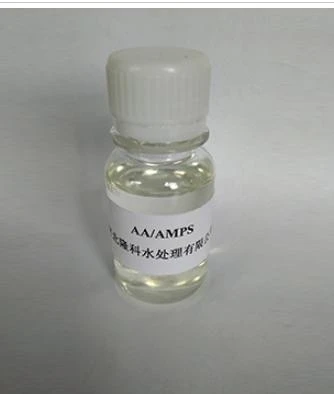 Understanding Polycarboxylic Acids: Properties, Applications, and Future PotentialPolycarboxylic acids are a versatile group of polymers widely used in water treatment, cleaning products, concrete admixtures, textiles, and even sustainable materials.អានបន្ថែម
Understanding Polycarboxylic Acids: Properties, Applications, and Future PotentialPolycarboxylic acids are a versatile group of polymers widely used in water treatment, cleaning products, concrete admixtures, textiles, and even sustainable materials.អានបន្ថែម -
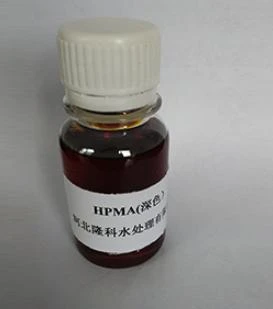 Scale Inhibitor Explained: How to Protect Your System from Limescale and Hard Water DamageIn water systems—from industrial boilers and cooling towers to household appliances—scale is a persistent enemy.អានបន្ថែម
Scale Inhibitor Explained: How to Protect Your System from Limescale and Hard Water DamageIn water systems—from industrial boilers and cooling towers to household appliances—scale is a persistent enemy.អានបន្ថែម -
 Scale and Corrosion Inhibitors: Essential Chemicals for Industrial Water System ProtectionIn industrial water systems—cooling towers, boilers, heat exchangers, pipelines, and RO systems—two silent threats can cause serious damage over time: scale formation and corrosion.អានបន្ថែម
Scale and Corrosion Inhibitors: Essential Chemicals for Industrial Water System ProtectionIn industrial water systems—cooling towers, boilers, heat exchangers, pipelines, and RO systems—two silent threats can cause serious damage over time: scale formation and corrosion.អានបន្ថែម -
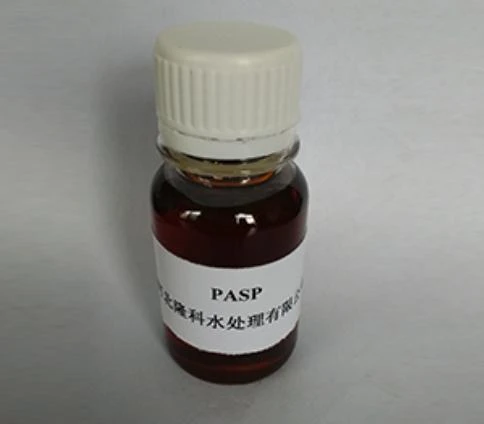 Polyaspartic Acid: A Biodegradable Polymer for Sustainable ChemistryAs industries move toward more sustainable materials, polyaspartic acid (PASP) is gaining traction across sectors—from water treatment and agriculture to coatings and biomedical applications.អានបន្ថែម
Polyaspartic Acid: A Biodegradable Polymer for Sustainable ChemistryAs industries move toward more sustainable materials, polyaspartic acid (PASP) is gaining traction across sectors—from water treatment and agriculture to coatings and biomedical applications.អានបន្ថែម







